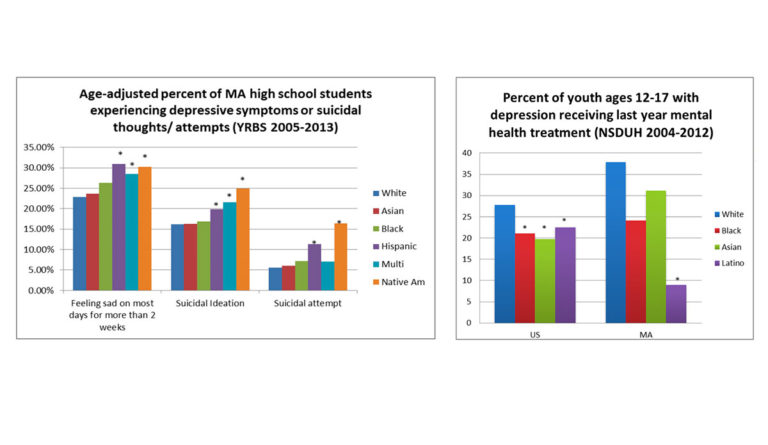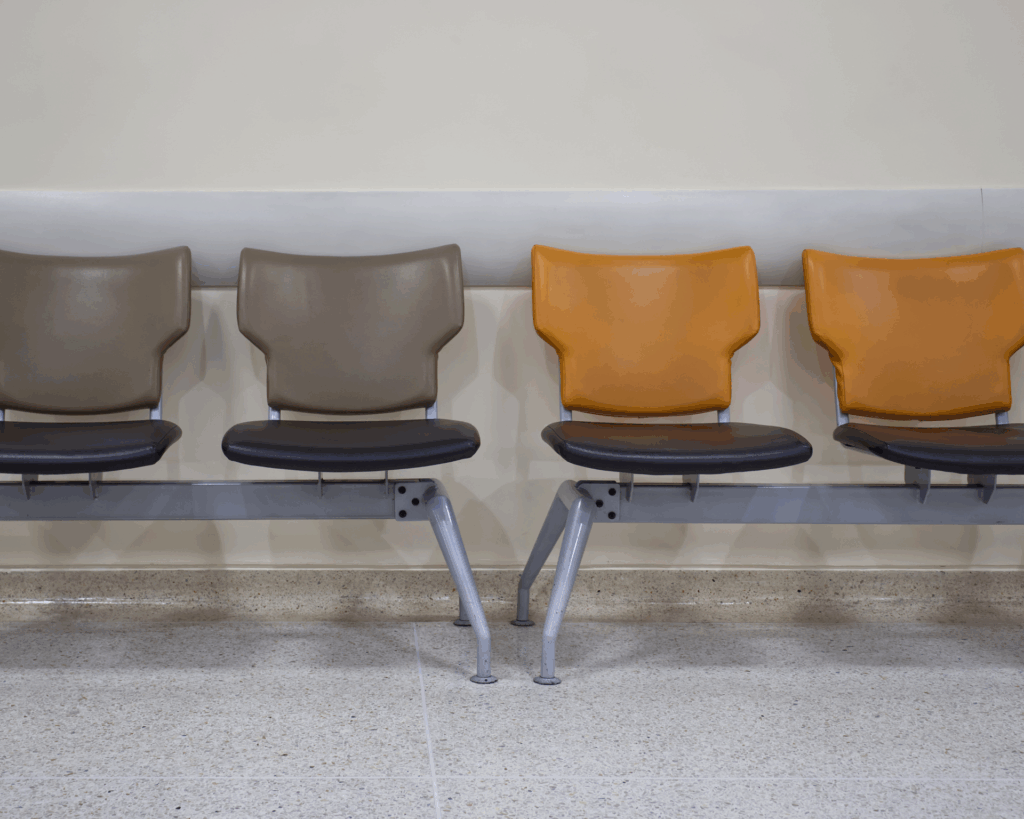Ethnic Disparities in Adolescent Mental Health Treatment
Adolescent racial or ethnic minorities in Massachusetts experience disproportionately high levels of sadness and suicide attempts. There is also a large disparity between white youth and minority youth receiving depression treatment.

Read Time: 2 minutes
Published:
Boston has a poverty problem that it has not effectively addressed: 21.6% of the population lives below the federal poverty threshold. This is well above the national rate of 15.9%. A large number of those in poverty are minorities.

Photo via Boston, Massachusetts (MA) Poverty Rate Data. City Data.
The empirical link between poverty and depression is similarly stark, especially for racial and ethnic minorities. For example, a study by Dunlop et al. in 2003, shows that minority groups were significantly more likely to experience major depression and factors associated with depression than were white people.
Adolescence adds an intense layer with important implications. More recent data from Brandeis University’s Massachusetts Health Policy Forum of 2014 show that adolescent racial or ethnic minorities in Massachusetts experience disproportionately high levels of sadness, suicidal ideation, and suicide attempts. There is also a large disparity between white youth and minority youth receiving depression treatment. MassHealth, Massachusetts’ Medicaid program, does offer mental health treatment services, but stigma, practical accessibility, patient knowledge, and lack of bandwidth all make obtaining and sustaining treatment very difficult. Moreover, though mental health treatment is crucial, it very often does not address the systemic inequities that people of color and those in poverty face, meaning the underlying problems do not get solved.
Databyte via The Time is Now: Tackling Racial and Ethnic Disparities in Mental and Behavioral Health Services in Massachusetts. The Massachusetts Health Policy Forum.
If you are having thoughts of suicide, call the National Suicide Prevention Lifeline at 1-800-273-8255 or visit suicidepreventionlifeline.org.



